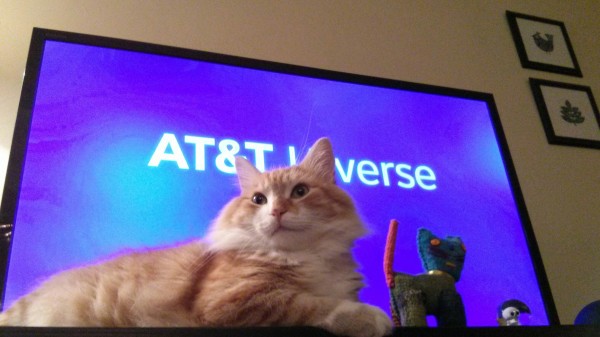Microsoft dumps Mediaroom

Is IPTV an epic fail, or just for Microsoft? Ericsson is buying Mediaroom, ending weeks of rumors and leaving me (and presumably others) wondering what this means for Xbox 720 (or whatever Microsoft calls it) as an entertainment hub. Perhaps the visionaries up in Redmond, Wash. see something the Stockhom, Sweden-based telecom equipment giant should: IPTV has no long-term future.
Mediaroom is great. I've used the product since February 2008, when AT&T U-Verse came to the neighborhood. The program guide is straightforward and functional, and there are lots of trendsetting features, or were. Not much changed over the past two years, even while rivals added more HD-channel recording capabilities, among other enhancements. Many of the best, early features, such as streaming recorded shows among other boxes in the home, are mainstream from rivals. Mediaroom was not high on Microsoft's priority list.
The company made its first inroads into IPTV nearly 15 years ago, with Microsoft TV being the first, major branded product for telecos. Microsoft renamed Mediaroom in June 2007. In the United States, Verizon developed a solution based on Microsoft TV, but dramatically changed the user interface about a year after launch. I first subscribed FiOS TV about a decade ago and kept the service until moving from the Washington, DC area to San Diego in October 2007.
AT&T deploys purer Mediaroom, which competes with Cox cable in my neighborhood. U-Verse uses an IP network to provide television broadcasts and Internet service. Telco, rather than cable company, provides the service, which in my home failed only twice in more than five years. The first time AT&T had service problems. The second time, there was a massive electrical outage in San Diego, which took down everything. I have never had cable service so reliable as this.
Besides AT&T, Entertain of Deutsche Telekom, Swisscom, Telefonica and TELUS Optik TV all use Mediaroom, but reach is limited: Just 22 million set-top boxes worldwide. That's a puny market that makes more sense for a telecom than a software company.
"Ericsson's vision of the Networked Society foresees 50 billion devices to be connected via broadband, mobility and cloud", Per Borgklint, a senior veep, says. "Future video distribution will have a similar impact on consumer behavior and consumption as mobile voice has had".
That sounds like Ericsson might be looking beyond the traditional subscriber-TV model. There has to come a time when cable operators and telecos providing Internet pipes to homes adapt the business model. The Internet has gutted many traditional media markets, why not television, too?
When I look at what syncs more with Microsoft's business, particularly entertainment strategies, cloud services to Xbox and other devices makes more sense than developing a platform architecture with limited reach. C`mon, 22 million set-top boxes globally might as well be nothing to Microsoft. But they matter more to Ericsson.
"This acquisition contributes to a leading position for Ericsson with more than 40 customers, serving over 11 million subscriber households", Borgklint says. "In addition, Ericsson will be powered with senior competence and some of the most talented people within the field of IPTV distribution".
See my next post for more on changing TV trends, focusing on cord-cutting. I originally wrote for this story but decided to separate content into two shorter posts.
Photo Credit: Joe Wilcox